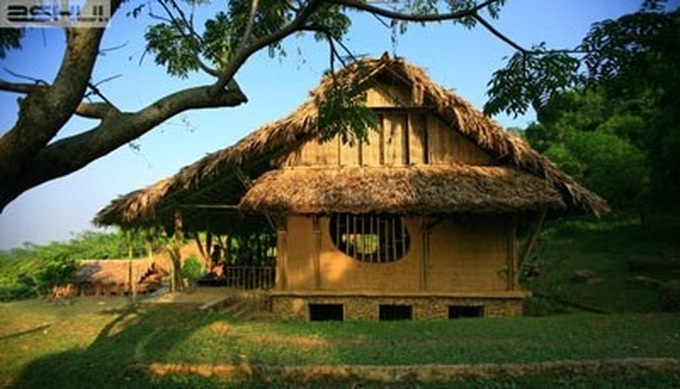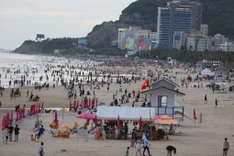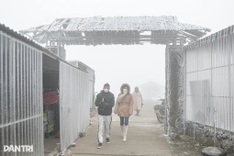Environmental experts have called on Vietnam to make further efforts in providing economic incentives and better policies to promote "greener" buildings in the face of resource depletion and rapid urbanization.
 |
According to Waibel, who works in the country as part of a German-funded research programme on sustainable development of megacities, residential homes account for 24 percent of global energy consumption, but the figure is around 54 percent in Vietnam and 33 percent in Southeast Asia as an average, citing statistics from the International Energy Agency.
Urging leaders to promote climate-adapted and energy-efficient buildings, Waibel said: "Clearly it would be a lost opportunity if policymakers did not try to foster energy efficiency related to Vietnam's building and housing sector."
However, green housing in Vietnam should be developed in ways that suit the country's economic conditions, stressed architecture Nguyen To Lang, vice rector of Hanoi Architecture University.
These include harnessing local resources, looking to simple construction solutions that are relevant to local technology capabilities, easy to maintain and affordable for consumers.
Yannick Millet, executive director of the Vietnam Green Building Council, said the Government has a major role to play in promoting sustainable construction, including enforcing stricter building codes and standards with regards to energy, waste and material usage.
Further efforts should also be made to encourage green private developments through the enhancement and implementation of green building incentive policies, he said.
Others called for better legal frameworks, which would encourage and oblige project consultants, developers and owners to embrace sustainable technologies and materials.
In September, the Government approved the Vietnam Green Growth Strategy, targeting an 8-10 percent reduction in GHG emissions by 2020, compared to levels recorded in 2010.




















